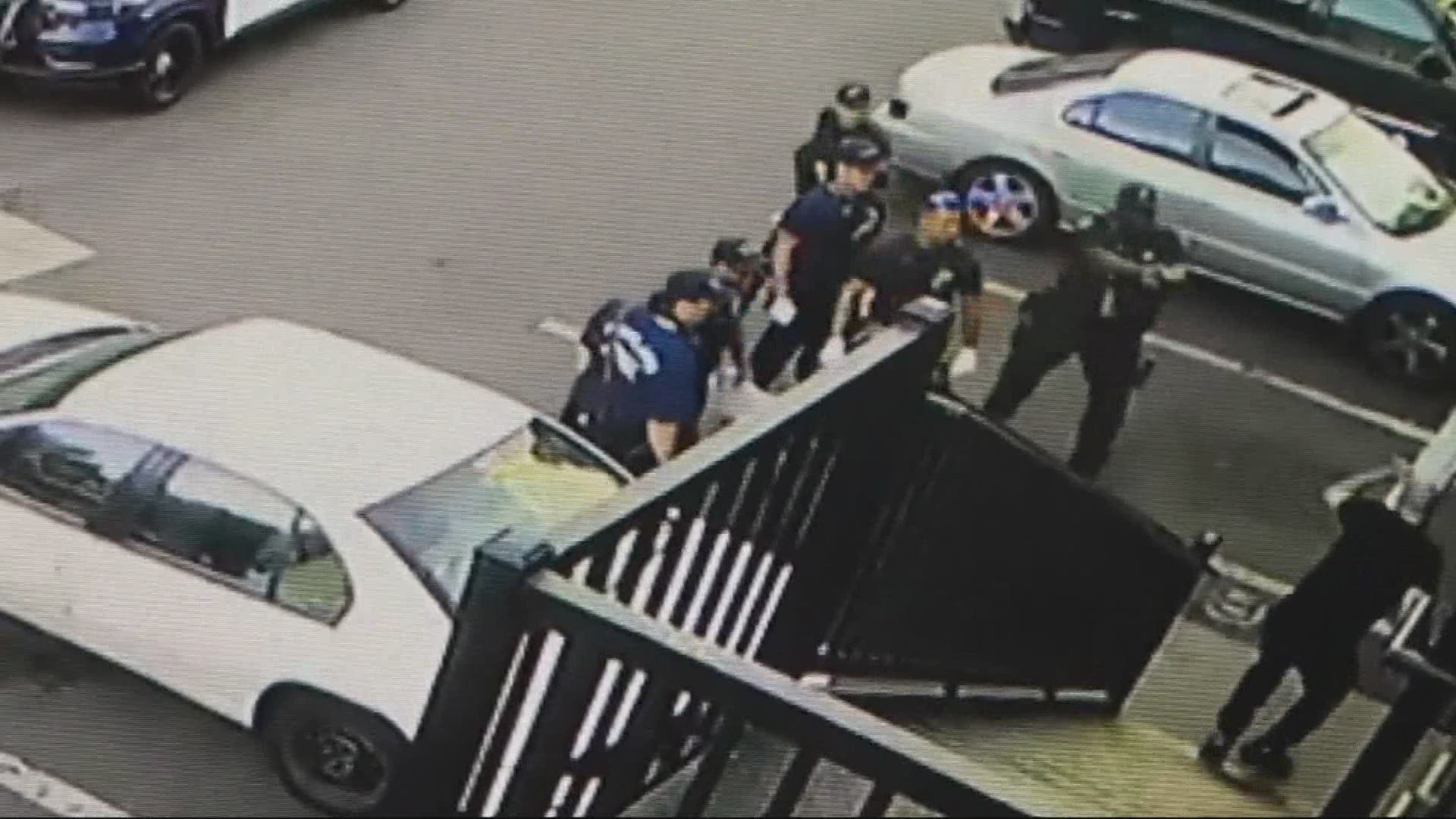PORTLAND, Ore. — The U.S. Department of Justice is pushing Portland Police to equip officers with body-worn cameras. The request is one of several changes that DOJ lawyers want the city to make in order to satisfy a 2014 settlement agreement over police reform.
On Thursday night, a civil rights lawyer from the Department of Justice spoke with a community group. Attorney R. Jonas Geissler described the value of body cams, illustrated by the June 24th shooting of Michael Ray Townsend at a North Portland motel.
“That right there is a case study just how useful a body worn camera system can be,” explained Geissler.
RELATED: Man killed in NE Portland police shooting identified; surveillance footage of incident released
Portland Police officers didn’t have body-worn cameras, but surveillance footage captured the deadly shooting and helped show the public, police and the DOJ exactly what happened.
“But for the fortuitous nature of having been a surveillance camera there- would we really know what really happened with any sort of assurance?” asked Geissler. “We would have different versions of the event, but in the recording, you have solid data on which to rely.”
Earlier this year, a KGW investigation found of the 75 largest municipal law enforcement agencies in the United States, Portland was the only police department that doesn’t use body-worn cameras.
The city has explored police body cams for nearly a decade, but those efforts have been stymied by a lack of money and politics. The Portland Police bureau estimates it would cost roughly $2.9 million to get a body-worn camera program up and running, with ongoing costs of about $1.8 million a year.
Previously, City Commissioner Joanne Hardesty, an outspoken critic of body cameras, questioned whether they are effective. But, after being briefed by Department of Justice lawyers this past week, Hardesty changed her tone and sounds open to the idea.
“I have been researching the issue and now believe there is new technology, policies, and additional best practices to draw from that can lead to a body camera program that produces better outcomes in policing, but the devil is in the details,” Hardesty said in a written statement.
The city is currently in private contract negotiations with the union representing Portland officers. Among the issues reportedly being hashed out: body cams.
“The Portland Police Association has voiced their support for body worn cameras not only as an accountability measure but also to document the outstanding work that Portland Police Officers do every day,” said Union President Daryl Turner in a written statement.

